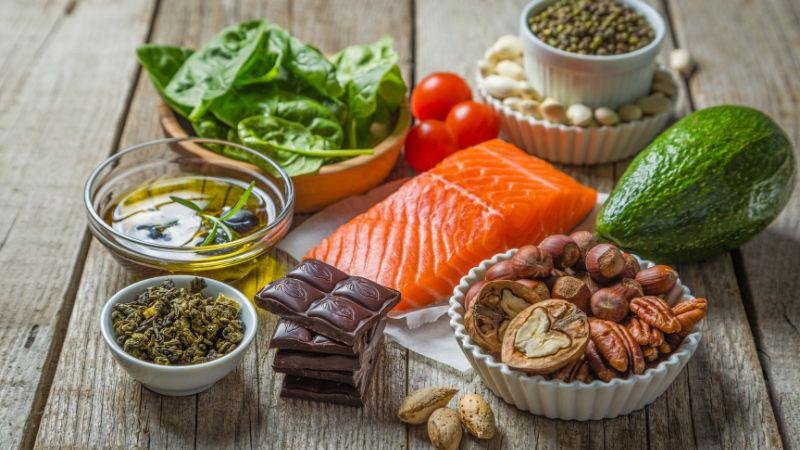Nutrition in Maintaining Healthy Teeth and Gums
Proper nutrition is essential for healthy teeth and gums. The foods you eat influence your oral health by strengthening your teeth, reducing plaque buildup, and preventing gum disease. Here’s a closer look at how nutrition contributes to a strong and healthy smile.
1. Calcium for Strong Teeth
A. Benefits of Calcium
- Calcium strengthens tooth enamel, the protective outer layer of your teeth.
- It also supports jawbone health, preventing tooth loss.
B. Sources of Calcium
- Include dairy products like milk, cheese, and yogurt.
- Non-dairy options include almonds, tofu, and leafy greens like kale.
2. Vitamin D for Calcium Absorption
A. Why Vitamin D is Essential
- It helps the body absorb calcium effectively.
- Vitamin D deficiency can lead to weak teeth and bones.
B. Sources of Vitamin D
- Spend time in sunlight to boost vitamin D levels naturally.
- Eat fortified cereals, fatty fish, and eggs to meet daily needs.
3. Phosphorus for Enamel Repair
A. Role of Phosphorus
- It works with calcium to repair and rebuild tooth enamel.
- It also plays a role in maintaining the structure of teeth.
B. Foods Rich in Phosphorus
- Enjoy protein-rich foods like fish, eggs, poultry, nuts, and beans.
4. Vitamin C for Healthy Gums
A. Importance of Vitamin C
- Vitamin C strengthens gum tissues and helps prevent gum disease.
- It boosts collagen production, which supports the structure of gums.
B. Sources of Vitamin C
- Add citrus fruits, strawberries, bell peppers, and broccoli to your diet.

5. Antioxidants to Fight Bacteria
A. Role of Antioxidants
- They neutralize harmful bacteria and inflammation in the mouth.
- Antioxidants promote healing and reduce the risk of periodontal disease.
B. Foods Rich in Antioxidants
- Eat berries, green tea, spinach, and nuts to enhance oral health.
6. Foods That Naturally Clean Teeth
A. Crunchy Fruits and Vegetables
- Apples, carrots, and celery scrub away plaque and stimulate saliva production.
- Saliva helps neutralize acids and wash away food particles.
B. Sugar-Free Chewing Gum
- Chewing gum stimulates saliva flow, which cleanses the mouth.
7. Limit Sugary and Acidic Foods
A. Impact of Sugar
- Sugar feeds harmful bacteria in your mouth, causing cavities and decay.
- Sticky sweets are particularly damaging as they linger on teeth.
B. Impact of Acidic Foods
- Acidic foods erode tooth enamel over time.
- Reduce consumption of soda, citrus juices, and vinegar-based foods.
8. Hydration for Oral Health
A. Why Water is Vital
- Water washes away food particles and neutralizes acid.
- It also supports saliva production, essential for maintaining oral pH balance.
B. Drink Fluoridated Water
- Fluoride strengthens enamel and helps prevent tooth decay.
9. Magnesium and Zinc for Oral Health
A. Role of Magnesium
- Magnesium aids in the absorption of calcium, boosting tooth strength.
B. Role of Zinc
- Zinc fights bacteria and supports gum health.
C. Food Sources
- Eat seeds, nuts, whole grains, and lean meats to get these essential minerals.
10. Avoid Harmful Dietary Habits
A. Frequent Snacking
- Snacking often exposes teeth to repeated acid attacks.
- Opt for balanced meals instead of grazing throughout the day.
B. Alcohol and Smoking
- Both habits contribute to dry mouth and increase the risk of gum disease.
- Avoid them to maintain oral health.
Conclusion
Nutrition plays a crucial role in maintaining strong teeth and healthy gums. A balanced diet rich in essential vitamins and minerals not only enhances oral health but also contributes to overall well-being. By choosing nutrient-dense foods and avoiding harmful dietary habits, you can keep your smile bright and your gums healthy for years to come.



